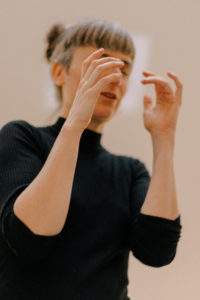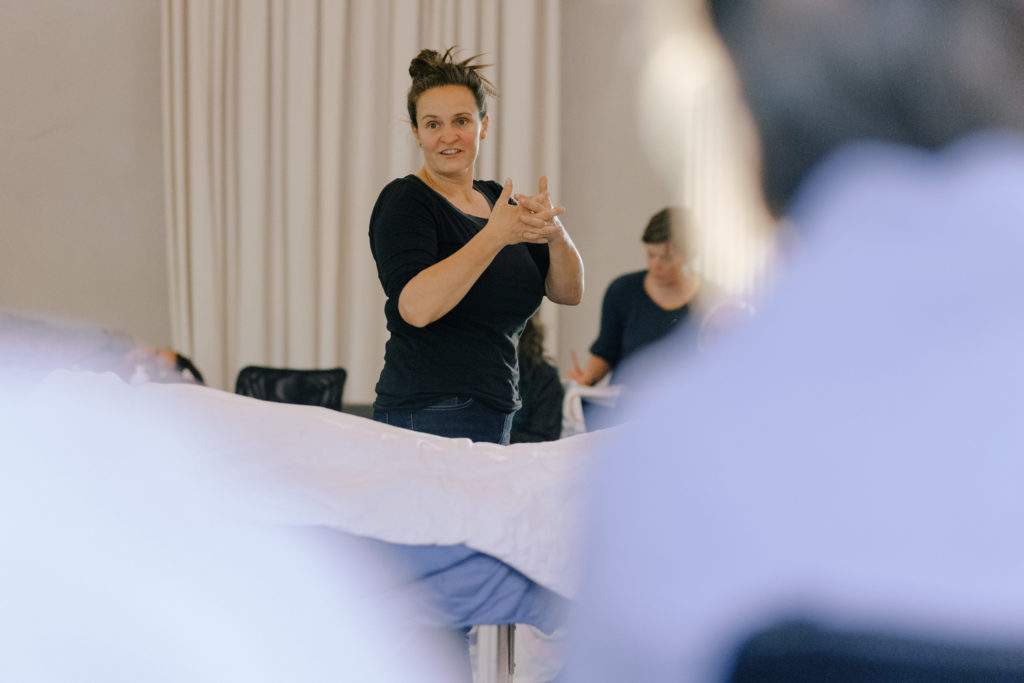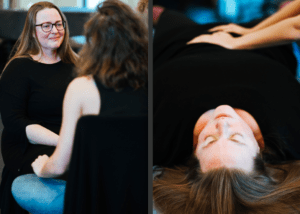
Voices on Grief: from Pantarei Approach Practitioners
Grief is about loss. It is painfully acute in the moment we experience it. Grief can also be delayed and hibernate and then suddenly reappear. It can be sometimes complicated or chronic. The past two years of the pandemic have brought a type of anticipatory grief. We worry our future plans may suddenly become canceled. Anticipatory grief can be about climate change or come from a diagnosis of a terminal illness. We can also experience collective grief, like for the current war happening in Ukraine. Grief can take many forms.
For certified practitioners, the Pantarei Approach School offers further advanced training. Recently Claudia Glowik held a course on the topic of grieving. For three days, twenty practitioners focused on how to guide their clients through this specific topic. Often people think grieving might only be about letting go of something. However, Claudia encouraged space for the client to connect to what they lost . Claudia started the course by saying, “We are always in a grieving process—we lose what yesterday was.” Grieving is not only about death. Participants shared their experiences with grief over the loss of jobs, apartments, dreams, and relationships.
Grieving Together
Lisa Kuhley and Sabeth Kerkhoff were motivated to take an advanced course on grieving because it was a topic specifically relevant to their clients. Lisa said, “Working with my Pantarei clients, we often come across grief and loss in their lives and have to find their personal way to express and deal with it. With the pandemic, it became even more obvious. Thus, diving a little deeper into that topic with fellow practitioners and Claudia’s experienced guidance seemed a good idea.” Sabeth feels, “There are few spaces and people who handle grief in a way that allows its energy and the gift it brings. I wanted to participate in the class to create a different space for my clients and myself. A space where we learn from grief and can be guided towards what we love and towards the actual size of our hearts.”
In the course, practitioners worked in pairs, and held space for each other’s grief. Sabeth describes what she shared with her practitioner partner and how the session moved her forward in her grieving process:
“I have grieved the death of two friends of mine in the last two years. Both of them were connected to a very special place in Norway—a little farm that inspired me to listen to my heart and follow my dreams. My friend Mona I met in Norway ten years ago and my friend Tina, who was running the farm in Norway. By losing those two people I also felt like I lost the place where we met, celebrated, dreamed—the place where I felt mostly like myself. I haven’t fully processed it all but I can say that the allowance to just re-visit that grief opened my heart also towards what I loved about these two wild women. And to the energy they brought into my life swinging between what can never return and what is indestructible.”
After a session, the partners change roles and the practitioner now becomes a client. Sabeth remembers a profound moment during the course when she was in the practitioner role. “What was extremely touching for me was that when my client shared with me about a dear friend that had died a year ago. I could feel two people very present. It was as if my client was present and with her this person, that she loved so much. We discovered together that in a way, although the sorrow was deep, her friend lived through here in a very strong way, by giving space to her values, to her openheartedness and to her decision to enjoy life.”
Sometimes you realize you need to grieve someone who is still there. Vivien Löschner signed up for the course to find a peaceful way to deal with the topic of her mother’s dementia. She wished to “finally have space to deal with losing her how I know her. I think the most profound moment was when I found some peace and trust and a new perspective in my head and heart concerning my Mum”.
Growing Together
As the advanced courses bring together experienced professionals of the approach, a concentrated and sensitive focus on the topic of grief filled the three days. In addition to one-on-one sessions and full-class conversations, small groups also met. When working with three people, you get the opportunity to hear two different responses to your topic or life situation. We each see something different in the same story. This reminds us of the core principles of the Pantarei Approach—that every person is unique, and every grieving process is individual. Everyone takes away something different from the course and grows in their own way.

After the course, Lisa believes the time spent together helped her and her ability to work with her clients. Lisa expresses, “I feel the idea of not having ‘to be over’ something at all was empowered. If we learn not to fear but to express our grief and loss, it may stay part of us throughout our whole life and even help us to learn and be in a deep connection with ourselves and the life around us. I feel even more comfortable to deal with grief and loss of my own and in the processes with my clients.”
The idea of grief as process of ‘getting over’ was also reexamined by practitioner Axel Nielson. “On a structural level I would wish that grief wasn’t talked about as something you ‘get over,’ but as something important we do in communities as a sort of emotional maintenance. Both to honor the people and places we have lost, but just as much to appreciate being alive.”
What thoughts do you have after the course? What is staying with you?
Sabeth: “I feel humbled by the grief I sense in myself and the grief I witness in others. What stays with me is the necessity to connect to grief when loss of any kind appears in our lives. I cannot bypass the “goodbye.” Grief lets me connect to my heart-space. I sense that there my vulnerability lies just arm in arm with my greatest strengths.”
Lisa: “As always, I loved the Pantarei Approach’s emphasis on the idea of “making it your own” grief or loss — and helping my clients to find and trust their very unique expression of it. I loved experiencing how the magic of the Pantarei Approach works to bring flow and encouragement into a part of our life that is—for many people in our society—full of unpleasant, shameful or dark emotions.
Axel: “I learned to see grief as something that has the potential to connect people to important parts of themself. Also to see if it is parts of themself that they lost access to, when they lost a loved one. What you grieve in your life says a lot about how you love and what you value.”
Over the days, Claudia spoke of grief as a gift. Because even though you have lost something, there is an opportunity to fill that space with something you care about. Claudia believes “Grief allows you to learn about yourself— and that is a gift”.
By Mike O’Connor

If you are experiencing grief related to the Ukraine War, support sessions are available free of charge. Information can be found here.




